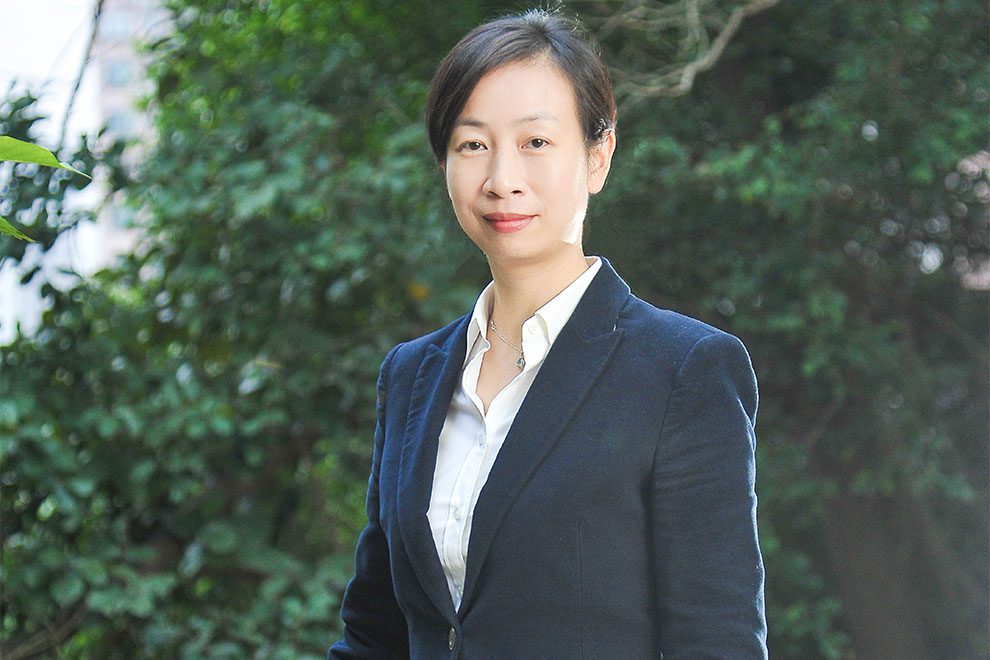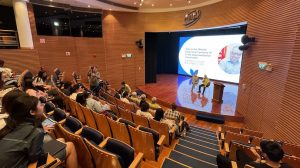A new IFT Charter has governed the Institute since 7 August. IFT President Dr. Fanny Vong says the Charter is a milestone, opening up a world of new possibilities for the Institute’s development.
“The expanded structure under the new Charter will allow IFT more resources and enables us to provide more programmes, as well as to put the right people in the right places,” Dr. Vong says.
“With the new structure, I am quite confident we will be able not only to maintain our existing quality, but to excel further.”
The advent of the new IFT Charter coincides with the introduction of the first postgraduate programmes to be offered by IFT, leading to diplomas, master’s degrees or PhDs. The first postgraduate programmes began being offered in academic year 2019/20.
Dr. Vong says the altered structure of the Institute opens new ways for IFT staff to develop their careers. “The structure will motivate our staff to work even harder, as competent team members will be given higher positions,” she says.
The new Charter is innovative. The Institute has now a Chancellor, who is responsible for approving and awarding honorary degrees and other honours, and who will preside over all IFT events he or she attends. The Chief Executive of the Macao SAR is the Chancellor of the Institute, ex officio.
The new structure includes the IFT Council. The council comprises representatives of the Institute, the Macao SAR Government, the IFT student body, IFT alumni and the community in Macao, including the tourism and hospitality industries.
The Council must approve the general direction of IFT and plans to develop the Institute. Its other duties include recommending candidates for leading management positions at IFT and approving new programmes of education and new teaching or research units.
Dr. Vong says the establishment of the Council is important for the Institute, because it will improve governance. She says it will also help the Institute to strengthen its links with the community in Macao.
The Charter establishes the Administrative Council, which is in charge of management and administration, and the Academic Council, which oversees academic matters.
Another change is the division of the Tourism College into the School of Hospitality Management and the School of Tourism Management.
“The 2 schools will allow better allocation of resources to develop relevant programmes under each school,” Dr. Vong says. “We will also be able to appoint deans and vice-deans. Currently we don’t have positions like these. This is going to expand our management team.”
A third, new school focuses on continuing education, taking on the work done in that field by the IFT Tourism and Hotel School. The status of the IFT Educational Restaurant is raised to that of a training unit, like the Pousada de Mong-Há training hotel.
Quality emphasised
The new IFT Charter gives the Institute 3 independent academic units, adding the IFT Centre for Teaching and Learning to the IFT Tourism Research Centre and IFT Global Centre for Tourism Education and Training.
Dr. Vong says the teaching and learning centre is particularly relevant. “All through our development, we have put a lot of emphasis on quality education, and this can be achieved only if we continuously review our practices in teaching and student learning,” she says.
The new Charter also makes changes to the administrative support structure of IFT. It sets up a new unit for campus development. “It is important that we have a team of specialist professionals to take campus development to the next level,” Dr. Vong says. Among the tasks of the unit, she says, is to pursue projects to give the Institute a “smart campus”.
“The expanded structure in both the academic part and the administrative part will allow IFT to consolidate further our position as a reputable provider of tourism education in Macao and in the region,” Dr. Vong says. “For students, it is also very good news, because now they clearly see provisions for the future development of IFT.”
Dr. Vong says the next step is to improve career development prospects for IFT scholars and introduce academic arrangements such as sabbaticals and research leave. “We will be looking at how to create better working and research conditions for our academic staff,” she says.
Dr. Vong says the Institute will keep its unique culture, no matter the changes. “We are just restructuring the system so that the right people go to the right places and are rightly motivated,” she says. “We are proud of our tradition, we are proud of our culture and we are confident we will move forward in bolder steps, with the support of the Macao SAR Government and the industry.”









